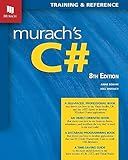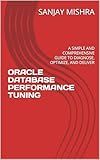Best Database Integration Tools to Buy in February 2026

Database Systems: Design, Implementation, & Management



Murach's C# Programming Book (8th Edition) Comprehensive Guide for Windows Forms Apps & Database Development - Self-Paced Learning for Beginners & Professional Developers



Database Design for Mere Mortals: A Hands-On Guide to Relational Database Design



Concepts of Database Management (MindTap Course List)



Concepts of Database Management



Data Mining: Practical Machine Learning Tools and Techniques (Morgan Kaufmann Series in Data Management Systems)
- EXCLUSIVE 'NEW' FEATURES ENHANCE USER EXPERIENCE AND SATISFACTION.
- STAND OUT WITH THE LATEST DESIGN AND CUTTING-EDGE TECHNOLOGY.
- BOOST DEMAND WITH LIMITED-TIME OFFERS ON EXCITING 'NEW' PRODUCTS.



The Manga Guide to Databases



ORACLE DATABASE PERFORMANCE TUNING: A SIMPLE AND COMPREHENSIVE GUIDE TO DIAGNOSE, OPTIMIZE, AND DELIVER


To call a PostgreSQL function in CodeIgniter, you can use the query() method of the database class. First, you need to establish a database connection in your CodeIgniter application using the database configuration file. Once the connection is established, you can use the query() method to execute your PostgreSQL function by passing the function call as a string parameter to the method.
For example, if you have a function named "get_user_info" in your PostgreSQL database that returns user information based on a user ID, you can call this function in CodeIgniter like this:
$this->db->query("SELECT * FROM get_user_info(1)");
In this example, 1 is the user ID parameter passed to the get_user_info function. The query() method will execute the PostgreSQL function and return the results that you can use in your CodeIgniter application.
Make sure that you have the necessary permissions and privileges to call the PostgreSQL function from your CodeIgniter application, and also handle any errors or exceptions that may occur during the execution of the function call.
How to benchmark the performance of a postgresql function call in codeigniter?
There are several ways to benchmark the performance of a PostgreSQL function call in CodeIgniter. Here is one way to do it:
- Use CodeIgniter's benchmarking feature:
You can use CodeIgniter's benchmarking feature to measure the time it takes to execute a PostgreSQL function call. You can enable the benchmarking feature in your CodeIgniter controller by adding the following code:
$this->output->enable_profiler(true);
After enabling the profiler, you can call your PostgreSQL function and CodeIgniter will display the benchmarking results at the bottom of the page, including the time it took to execute the function call.
- Use PHP's microtime() function:
You can also use PHP's microtime() function to measure the time it takes to execute a PostgreSQL function call. Here's an example code snippet that demonstrates how to do this:
$start = microtime(true);
// Call your PostgreSQL function here
$end = microtime(true); $execution_time = ($end - $start);
echo "Execution time: ".$execution_time." seconds";
By using one of these methods, you can easily measure the performance of your PostgreSQL function call in CodeIgniter.
How to call a postgresql function with output parameters in codeigniter?
To call a PostgreSQL function with output parameters in CodeIgniter, you can follow these steps:
- First, make sure you have set up a database connection in your CodeIgniter application that is connected to your PostgreSQL database.
- Create a stored function in your PostgreSQL database that has output parameters. For example, you can create a function like this:
CREATE OR REPLACE FUNCTION get_user_data(user_id INTEGER, OUT user_name VARCHAR, OUT user_email VARCHAR) AS $$ BEGIN SELECT name, email INTO user_name, user_email FROM users WHERE id = user_id; END; $$ LANGUAGE plpgsql;
- In your CodeIgniter controller, load the database library and call the function using the query method. You can retrieve the output parameters using the row() method like this:
$this->load->database();
$query = $this->db->query("SELECT * FROM get_user_data(1)");
$row = $query->row(); $userName = $row->user_name; $userEmail = $row->user_email;
echo "User Name: " . $userName . ""; echo "User Email: " . $userEmail;
- Make sure to replace "1" with the user ID you want to pass to the function.
- Run your CodeIgniter application, and you should see the output parameters printed on the screen.
That's it! You have successfully called a PostgreSQL function with output parameters in CodeIgniter.
How to call a postgresql function that takes a JSON parameter in codeigniter?
To call a PostgreSQL function that takes a JSON parameter in CodeIgniter, you can use the following steps:
- Create a new model in CodeIgniter to handle the PostgreSQL function call. For example, you can create a model called "Postgresql_model.php".
- In the model, create a function that will call the PostgreSQL function. You can use the CodeIgniter Database Library to interact with the database. Here's an example function that calls a PostgreSQL function named "my_function" with a JSON parameter:
public function call_postgresql_function($json_data) { $query = "SELECT * FROM my_function(:json_data)"; return $this->db->query($query, array('json_data' => $json_data))->result(); }
- In your controller, load the model and call the function with the JSON parameter. Here's an example of how to call the function in a controller:
$this->load->model('Postgresql_model'); $json_data = '{"key": "value"}'; $result = $this->Postgresql_model->call_postgresql_function($json_data);
// Do something with the result var_dump($result);
This way, you can call a PostgreSQL function that takes a JSON parameter in CodeIgniter. Make sure to adjust the function name and parameter according to your specific PostgreSQL function.
